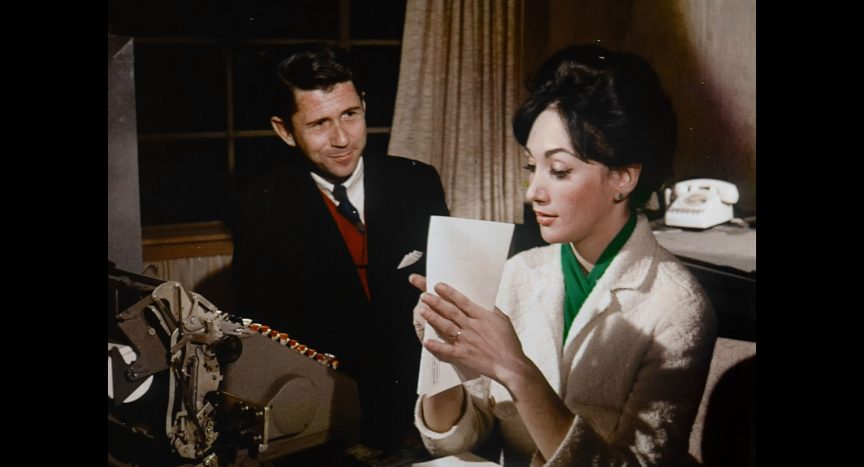Joseph Sarno made films for people who love to watch women undress. He made films for people who love to listen to walking basslines. Preferably, the bassline will accompany the undressing. Movie magic, of a sort.
In his relentlessly sluggish films, Sarno fills his placid compositions with boilerplate titillation. The expressive black and white of The Naked Fog lends a beauty to the numbing plod of the film. The dour coastlines are a melancholy salve to the quaint softcore debauchery. Meanwhile, in Moonlighting Wives, acidic color emphasizes the ambitiously lurid enterprise of the film’s central stenography service/prostitution ring. When the characters step outside, into the normalcy of the light of day, the bland suburban desolation depicts something like an empty existence. But the elegantly staged and shadowy exploitation can’t be the only way to express oneself, to escape mundanity, to make money, to find catharsis and pleasure? Can it?
Did You Know? Wicked Horror TV Has Classic and Independent Horror Films Available to Stream for Free!
These two 1966 features by Joseph Sarno are featured on the newest Blu-ray tribute from Film Movement. The disc offers gorgeous restorations, but the sourced prints are noticeably damaged. Both films here teem with scratches and imperfections–all texturally appropriate for these bristly and hand-crafted works.
Both films star Tammy Latour, a likable screen presence who makes the very most of material that perhaps lacked on the page. She oozes with tacky evil as the enterprising ringleader in Moonlighting Wives, but it is the extended opening sequence of The Naked Fog where she most impresses. Her stifled pout captures a unique flavor of unhappiness. This sequence–a seemingly endless rumination on the asphyxiating interior of a scandalous party–is shot and edited with a sort of haunting repetition reminiscent of Steve Reich compositions. But the music that underscores the scene is instead the obnoxiously chipper jazz of composer Stan Free. In both films his pieces recur again and again–stiff and rickety and bloviating and intoxicatingly tacky.
There’s a rigid awkwardness to both films that makes the performers feel like mosquitos in amber, accosted and ensnared by the fluttering scratches on the celluloid, frozen forever in various states of indecency, with loosened ties and unclipped brassieres and glassy stares. These are films that are just about as equally fascinating as they are brutally boring. The Naked Fog is the particularly punishing of the two. While individual sequences stun (like the aforementioned opening, and another featuring a brutal revelation of infidelity), the film so often melts into a disorienting string of banal stripteases and vacant expressions. Moonlighting Wives is the more well-rounded feature. In particular, the detached outlook on its depiction of law enforcement, and its ambivalent portrait of justice being served, are more textually nuanced than one might expect of a nearly sixty-year old sexploitation film.
Sarno’s films will only appeal to those who have a specific inclination towards mid-century regional independent filmmaking. The original appeal and marketability of these pictures has been destroyed by time. They are now towering Ozymandian miniatures, eroded by technology (and the easy accessibility of pornography). Of course, the charm of these films is not entirely divorced from their obsolescence. The visible dustiness and age, an ephemeral coat of historical anti-significance, suggests just that. The tenacity of the independent filmmaker is, and will always be, one of their greatest traits. Sarno’s films are still holding on.
Film Movement has brought these pictures to us in all-new 2K masters. The physical release includes an audio commentary from film historian Tim Lucas, as well as several interviews. The double feature is out now on Blu-Ray, DVD and digital.
